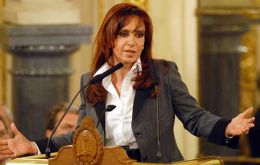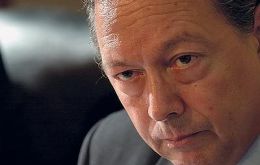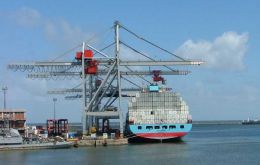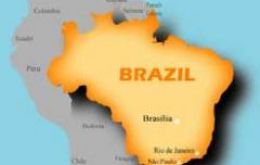MercoPress. South Atlantic News Agency
Economy
-
Tuesday, January 5th 2010 - 13:09 UTC
Global trade recovery from major contraction in 70 years forecasted slow

Global trade is expected to pick up again this year at a significant rate but not sufficient to overcome losses of 2009. Last year trade plunged 12.25% the worst result in seventy years and a full recovery can only be anticipated for 2011 when China will be confirmed as the world’s leading exporter.
-
Tuesday, January 5th 2010 - 13:06 UTC
Argentina’s inflation third highest in the world, say private consultants

Private consultants estimate that Argentina’s inflation in 2009 and in spite of the devalued government statistics was the third highest in the world behind the Democratic Republic of Congo and Venezuela.
-
Tuesday, January 5th 2010 - 13:00 UTC
Dakar rally considered a “gold mine” for northern Chile tourism industry

The Dakar Rally that began in the Southern Cone on New Year’s Day has some people applauding, but others not so happy. The Dakar Rally is divided between Argentina and Chile and includes eight days of racing in Chile before concluding January 16 in Buenos Aires.
-
Tuesday, January 5th 2010 - 12:52 UTC
Brazil’s main financial group has set eyes on UK’s rescued banks

Brazil’s leading private banking institution Itaú-Unibanco denied London press reports it was interested in block-buying into UK banks that were saved from collapse in 2008 by the British government, as well as banks in other countries including United States, but admitted an interest in shares
-
Tuesday, January 5th 2010 - 12:48 UTC
Argentina car production booming expects record year in 2010

Argentine car manufacturers are looking ahead with great optimism to what they consider an “excellent” 2010 when they expect to break several records, according to Cesar Luis Ramirez Rojas, president of the Argentine car manufacturers association
-
Tuesday, January 5th 2010 - 12:33 UTC
Uruguayan beef and vegetables in Argentina’s 2011menu

Argentina is a nation that prides itself on having more cattle than people but because of erred policies may soon be forced to import beef to keep its meat-loving citizens happy at the dinner table.
-
Thursday, December 31st 2009 - 11:12 UTC
Uruguayan economy forecasted to grow 4%; peso appreciated 25% in 2009

Uruguay’s peso achieved a record annual gain as neighboring Brazil’s economic recovery fueled demand for the country’s exports. The peso has jumped 25% this year, (9.4% in the last quarter) its biggest annual advance since the government created it in 1993 to replace the nuevo peso as part of an effort to stem surging inflation.
-
Thursday, December 31st 2009 - 11:07 UTC
Argentina’s stock market completes biggest annual gain in 18 years: 115%

Argentina’s main stock index completed its biggest annual gain in 18 years. The Merval index’s 115% rise this year is its best performance since 1991 and reverses a 50% drop in 2008.
-
Thursday, December 31st 2009 - 11:01 UTC
Chile’s share-index advanced 51% in 2009; Peso 26% stronger

Chile's leading share index ended 2009 with an annual gain of 51% as utility, retail and commodity stocks fuelled the biggest annual rise in 16 years. At the same time, Chile's currency, the peso ended with a 26% annual advance against the dollar, traders said.
-
Thursday, December 31st 2009 - 09:15 UTC
Brazil’s market soars 83% in 2009 and Real appreciates 34% against US dollar

The performance of Brazilian stocks in 2009 has been one of the highest in the world while the local currency, the Real reflected the recovery of Latinamerica’s largest economy by appreciating 34% against the US dollar this year.
